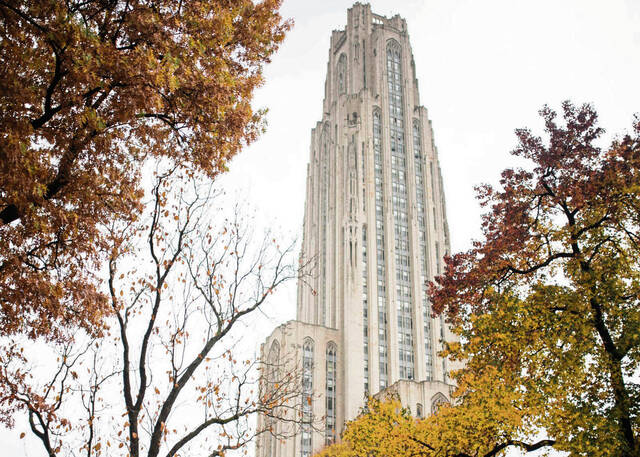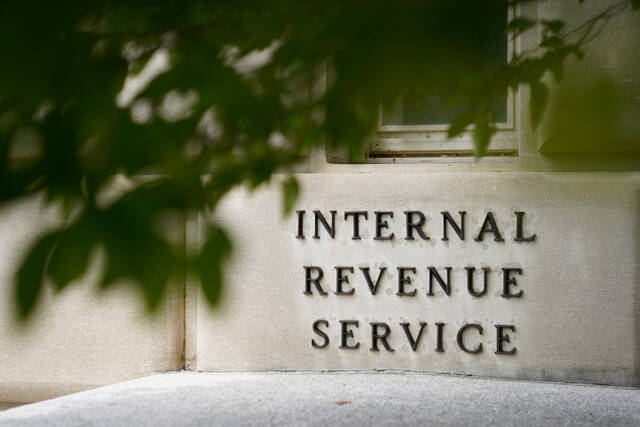University of Pittsburgh trustees have called a special meeting for Monday and are expected to vote on a resolution to name a successor to Chancellor Patrick Gallagher.
The 11 a.m. main campus meeting inside Alumni Hall’s Connolly ballroom is to be livestreamed and will include “Remarks of the Chancellor Elect,” according to an agenda added over the weekend to Pitt’s website.
What the new chancellor’s pay will be, if elected, is not yet known. The trustees compensation committee, which sets Pitt officer salaries, is to hold a special meeting at 3 p.m. Monday.
That panel is expected to vote on a “Resolution Approving Compensation Package for Nineteenth Chancellor of the University of Pittsburgh.”
Gallagher, the school’s 18th chancellor, has a salary of $698,202. He announced plans last year to step down this summer and teach on campus, having served nine years.
Pitt is Western Pennsylvania’s largest university. It has 34,000 students on its main Oakland campus and branches at Bradford, Greensburg, Johnstown and Titusville, as well as 14,000 employees.
It has a $5.5 billion endowment, 26th largest of any campus nationally as of fiscal 2022, and does more than $1 billion in sponsored research.
Since September, a 26-member search committee has worked to identify Gallagher’s successor, aided by the firm Storbeck Search, headquartered in Philadelphia.
Eva Tansky Blum, past Pitt trustees chair, headed the search panel representing board members, students, faculty, staff, alumni and others.
Blum also headed the search that brought Gallagher to Pitt in 2014.
Early in the process, Blum said the university sought someone who could further Pitt’s global reach, support its entrepreneurial efforts and positively impact the broader community. A subsequent job posting in the Chronicle of Higher Education expanded on those and other sought-after attributes.
The school’s 19th chancellor will lead a public institution that, under Gallagher, saw enrollment, research and fundraising gains despite a tenure complicated by social and political unrest nationally, as well as a shrinking student market, in particular in Western Pennsylvania.
On top of that, in March 2020, the covid-19 pandemic shuttered Pitt and other campuses. It forced instruction online, kept international students home and cost the university tens of millions of dollars in covid-19 remediation and testing, housing refunds and lost revenue from canceled events.
By fall 2022, enrollment rebounded, and Pitt crossed the $1 billion funded-research threshold.
During Gallagher’s tenure, Pitt saw its first new school in two decades. The School of Computing and Information was created by combining Pitt’s School of Information Sciences and the computer science department within the Dietrich School of Arts and Sciences. The university instituted a federal Pell grant match for students with greater financial need and is undertaking new programs and construction projects across campus.
Gallagher’s successor will be tasked with overseeing the university’s next fundraising campaign, after it is announced. The new chancellor also will be responsible for following through on a university pledge made under Gallagher and the board to make Pitt carbon neutral by 2037 and to continue divesting its fossil fuel holdings.
The moves were significant, although Pitt stopped short of immediate divestment in fossil fuel holdings sought by student and other groups.
Pitt’s 19th chancellor will have to navigate politics beyond campus, too, including the city, where Mayor Ed Gainey has rekindled a longstanding debate over whether certain public nonprofits should be taxed. Last month, he announced the city is challenging the tax-exempt status of 26 properties as part of its review of sites owned by purely public charities.
Then there are Harrisburg relations, long complicated in some quarters and increasingly so in recent years.
Some Republicans in the General Assembly threatened to hold up Pitt’s fiscal year 2023 state appropriation over issues including fetal tissue research.
Several admission milestones were reached last year.
Pitt received a record 73,000 undergraduate applications, including 27,500 from Pennsylvanians, an all-time high. The share of students either advancing their education or entering the workforce within six months of graduation also reached an all-time high of 97% on the Oakland campus.
Speaking to school trustees in February, Gallagher said he believes Pitt is well positioned. But he also said the higher education market it competes in has changed, with some colleges and universities seeing enrollment rebounding from the pandemic and others still struggling.
“For less selective schools, there is intense competition but it’s between institutions who are competing with each other for a smaller and smaller pool of students,” he said. “For the more selective schools, there is intense competition but it’s among the students who are competing with these applications to get into this small number of selective institutions.”
Last April, Gallagher said he planned to step down from the chief executive position in summer 2023. He plans to teach full time in the Kenneth P. Dietrich School of Arts and Sciences’ Department of Physics and Astronomy.
Gallagher succeeded Mark Nordenberg, who the previous year announced that he would step down in summer 2014 after almost two decades in office. Gallagher was hired away from the U.S. Department of Commerce, where he was director of its National Institute of Standards and Technology.
Gallagher holds a doctorate from Pitt in physics.








